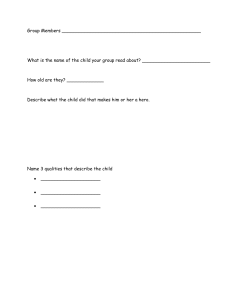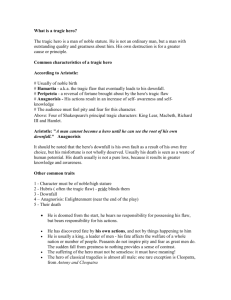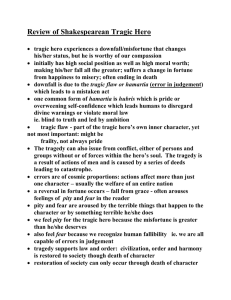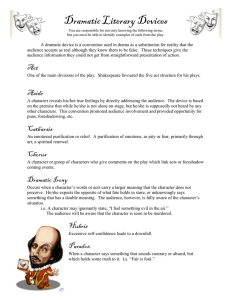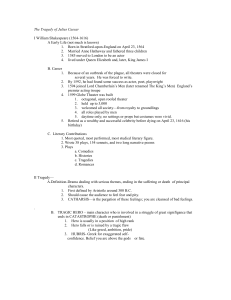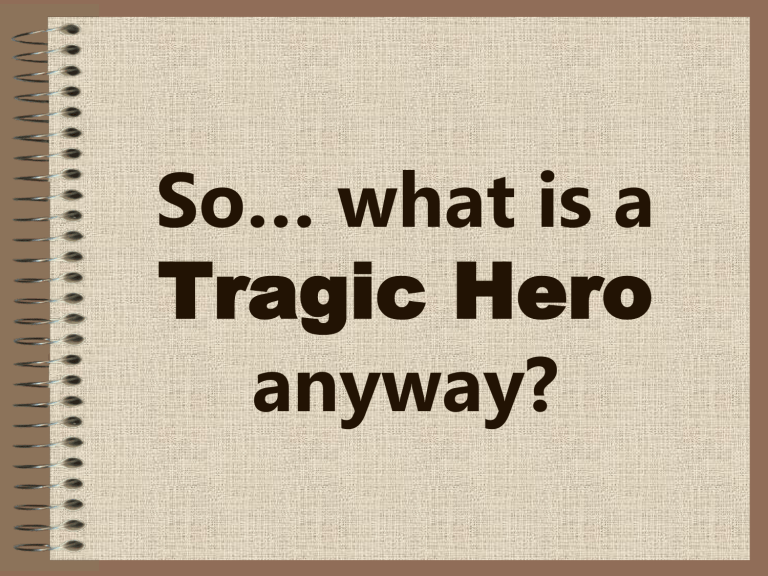
So… what is a Tragic Hero anyway? Tragic Hero Background “A man cannot become a hero until he can see the root of his own downfall.” -Aristotle The tragic hero is a man of noble stature. He is not an ordinary man, but a man with outstanding quality and greatness about him. His own destruction is for a greater cause or principle. Characteristics of a Tragic Hero Born of Noble Birth • Typically a king or member of the royal family • Someone that normal people would “look up to” or admire – has outstanding qualities Possesses a Fatal Flaw • Also called the Hamartia • Traditional fatal flaw is hubris, or excessive pride • Flaw ultimately leads to hero’s downfall, often death The Progress of the Tragic Hero • First enjoys privileged life (remember noble birth!) • Fate – that unseen force the Greeks believed controlled everyone’s life – determined that he would have a tragic flaw. • Flaw causes a reversal of fortune called the Peripeteia. • The hero is unable to see that he caused the peripeteia himself at first, but then he becomes aware. This moment of awareness is called anagnorisis. • Anagnorisis leads to an extreme downfall, or catastrophe, for the hero. • Downfall seems more impressive due to fall from noble position The hero must be physically or spiritually wounded by his catastrophe • May be injured, or may suffer losses of family or fortune • Wounds are not entirely deserved Downfall arouses pity or fear • Audience feels pity for hero once they see his suffering and understand that he is changed by his experience (and he is always changed). • This feeling of pity leads to a release of emotion in the audience (sympathy, or even tears) called catharsis. “Wait…this could happen to me!”
